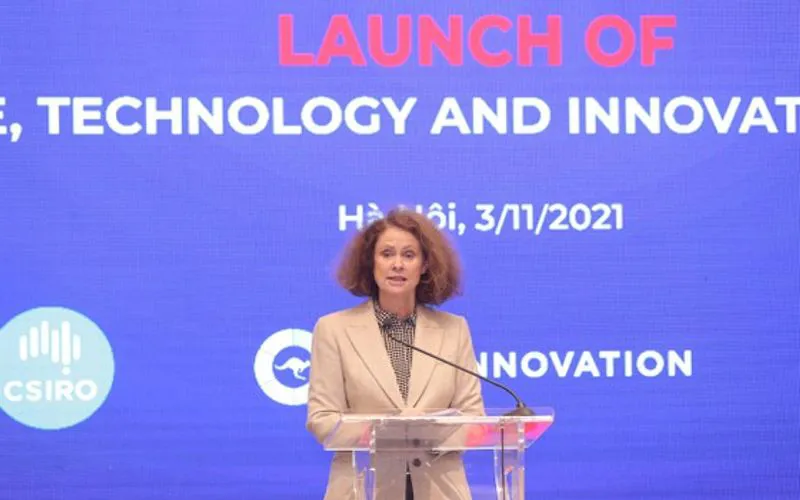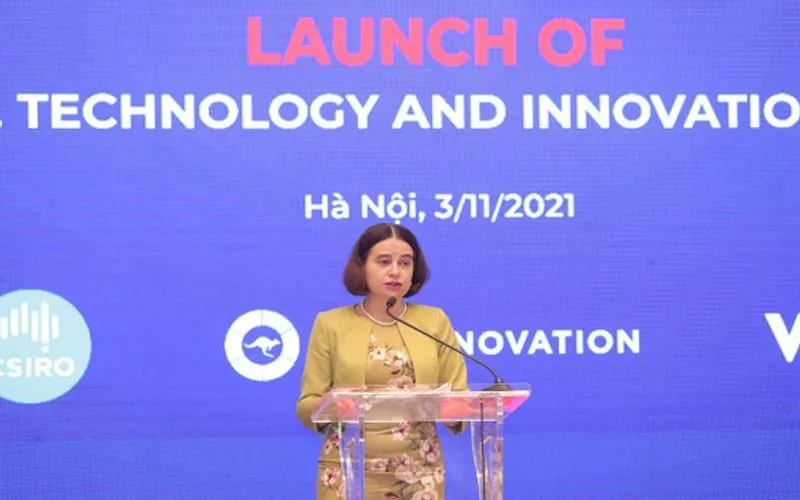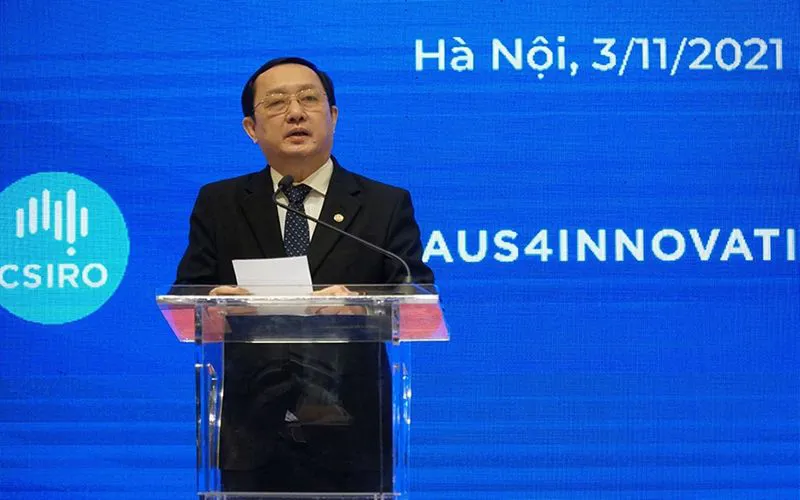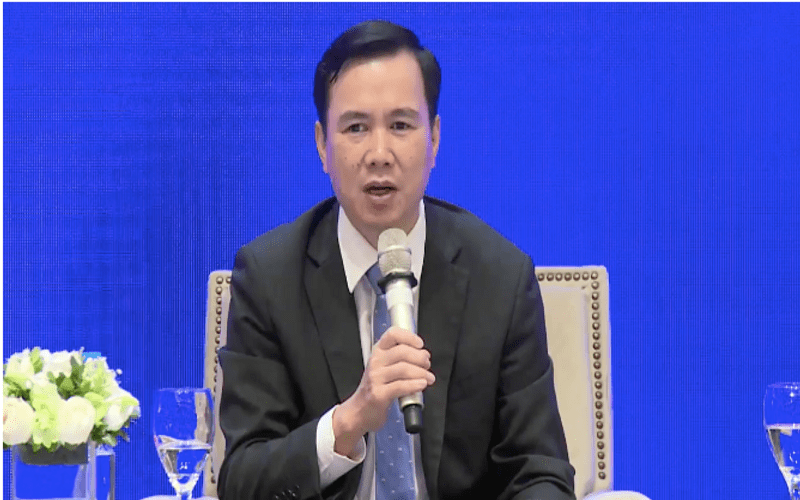Innovation to be new engine of Vietnam's growth: Reports
The reports show how science, technology, and innovation as a new engine contributed to Vietnam’s socio-economic growth.
Promoting technology absorption and diffusion and enhancing human capital will be key to driving sustained economic growth in Vietnam, according to two new reports launched on November 3 by Vietnam’s Ministry of Science and Technology (MoST), the Australian Government, and the World Bank (WB).
The “Science, Technology and Innovation (STI) Report”, conducted by MoST and WB, aims to examine the current STI policies and development framework, analyze the bottlenecks that hamper firms from innovating, and propose a comprehensive reform agenda to spur innovation-led growth.
“Vietnam will need new drivers of economic growth to meet its ambition to become a high-income economy by 2045 and innovation will be fundamental in boosting incomes and improving the quality of growth. However, there are different approaches to accelerating innovation and this report presents ideas that could work well for Vietnam,” said Carolyn Turk, WB country director for Vietnam.
Carolyn Turk, WB Country Director for Vietnam addresses the event. Screenshots: Nguyen Ngan |
The report suggests that Vietnam should reorient the STI’s policy from supporting cutting-edge innovation to promoting the adoption and diffusion of technologies among a broad group of firms. Technology diffusion - not just research and invention - can bring significant productivity gains and economic transformation. This is where the government’s interventions and support can have the biggest payoffs.
Building firm capabilities to make the most of state-of-the-art technologies should be the priority. Closing the skills gaps of the workforce - both quality and quantity - will be also important to harness the full power of innovation, the report stated.
The impact of technology adoption is also clearly quantified in the report “Technological change in Vietnam: the contribution of technology to economic growth”, developed by CSIRO, Australia’s national science agency, and MoST.
Delivered through the Aus4Innovation Program, this report provides tools to assess the current situation and impacts of technological progress and innovation on Vietnam's economic growth. By applying economic models to an extensive database of Vietnam business technology adoption, researchers show that technology adoption contributed significantly to the total economic growth to Vietnam over the 2016-2019 period.
Australian Ambassador to Vietnam Robyn Mudie makes a speech at the event. Screenshots: Nguyen Ngan |
“Australia has been supporting Vietnam in making evidence-based policy decisions in STI, and this report is another major milestone in our partnership. A team of researchers from Australia and Vietnam has been working on this report for 1.5 years, collecting and analyzing nearly 20 years’ worth of data to develop two modern economic models to quantify the contribution of technological progress to economic growth,” Australian Ambassador to Vietnam Robyn Mudie said.
“We hope that MOST will make good use of this report and these two models to develop practical national STI policies in the long run,” she added.
These reports will be an important reference for policy in the economic transition process of Vietnam to 2030, with the vision to 2045. It shows that efficiency and innovation play an increasingly important role and overtakes physical capital and cheap labor in the contribution to economic growth.
“The two reports show how science, technology, and innovation as a new engine contributed to Vietnam’s socio-economic growth and how we can move forward to continuous improvement and enabling of our innovation ecosystem,” said Vietnam’s Minister of Science and Technology Huynh Thanh Dat.
Minister of Science and Technology Huynh Thanh Dat speaks at the event. Screenshots: Nguyen Ngan |
He said Vietnam will continue to upgrade the national innovation system for better creation, translation, and application of knowledge and technology towards achieving sustainable development goals of the country set for 2030 and 2045.
"We highly appreciate the support of the Australian Government and the World Bank in these efforts and look forward to more collaborative initiatives to turn those thoughtful recommendations and tools into actions,” the minister added.
Vietnam has seen rapid growth in the past few years. Strong leadership and institutions will be key for Vietnam to leverage these opportunities and unblock bottlenecks for further economic development.
"It is a fact that manufacturing enterprises still use technology 1.0 (manufacturing by hand), 2.0 (automatically without computer connection) and there remains a very long way to technology 4.0. Investment is needed to create motivation for businesses to innovate technology for more sustainable development. The fact that businesses remained afloat and keep developing during the recent pandemic is the clearest proof of innovation investment," Deputy Minister of Science and Technology Bui The Duy told The Hanoi Times.
Deputy Minister of Science and Technology Bui The Duy speaks at a roundtable discussion in the framework of the event. Screenshots: Nguyen Ngan |
New business models and digital-based start-ups bring about promising prospects. Vietnam is becoming an attractive destination for investors, said Marcin Piatkowski, a WB expert.
He stressed that the unprecedented challenges caused by the Covid-19 pandemic have put a large number of businesses at risk of bankruptcy and many workers lost their jobs. The pandemic makes it necessary to accelerate technology adoption, technology diffusion, new business models, and digital solutions to support enterprises’ growth and agility.
Closing the skill gap of human resources both in terms of quality and quantity will also be an important factor to harness the full power of innovation, Marcin Piatkowski noted.
"Vietnam needs to make efforts to increase the university enrollment rate, helping to boost the capacity and qualifications of the workforce. Besides, the strategy of training innovation skills and providing a transparent diploma system should also be encouraged in the country," Marcin Piatkowski told The Hanoi Times.













